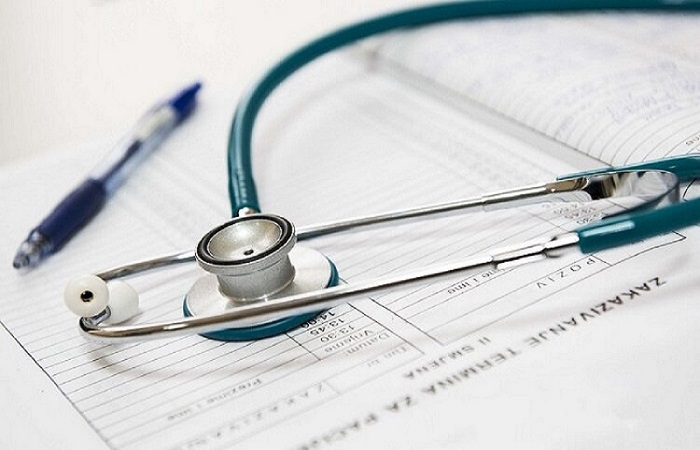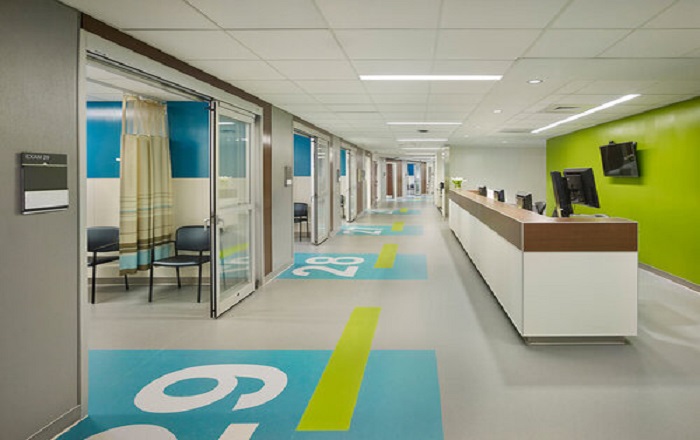April 2025 Healthcare Roundups You Shouldn’t Miss
Welcome to the official April roundup from our Hospital Improvement Newsletter; your monthly trusted source for the most critical healthcare updates, innovations, and trends impacting hospitals and healthcare delivery in Nigeria.
This month, we’ve handpicked 30 essential stories that highlight pressing challenges, major reforms, equipment and device updates, and innovations reshaping Nigeria’s healthcare landscape.
These were selected to help you stay informed and prepared as a healthcare leader.
🩺 Full List of Curated Healthcare Stories
- NAFDAC Fights Fake Drugs With New Tech
NAFDAC DG Prof. Adeyeye urged healthcare stakeholders to back new anti-fake drug initiatives. She unveiled the Greenbook, 2024 Traceability, and Pediatric Regulations—tech-driven tools. They track product authenticity and position Nigeria as Africa’s traceability leader.
👉 Read more…
- Nigeria Grants 2-Year Tax Waiver on Healthcare Imports
The Nigerian Customs Service has exempted import duties and VAT for critical healthcare products. This includes APIs and diagnostic kits, for two years. This policy aims to lower costs and encourage investment in local pharmaceutical production. Only manufacturers recognized by the Federal Ministry of Health and with a valid Tax Identification Number (TIN) are eligible.
👉 Read more…
- Public Health Expert Advocates Digital Health Records in Nigeria
Dr. Osayamen Igunma emphasizes the urgent need for Nigeria’s healthcare system to transition from paper-based records to electronic medical records (EMRs) for improved efficiency and patient care. He highlighted the risks of paper systems and called for policy enforcement and staff training to support EMR adoption.
👉 Read more…
- LoveWorld Medical Centre Pioneers Cancer Care with Nuclear Medicine Breakthrough
The LoveWorld Medical Centre has launched Nigeria’s first advanced Nuclear Medicine Department, successfully performing Lutetium-177 cancer therapy for the first time in the country. This targeted, minimally invasive treatment shows promise for hard-to-treat cancers and marks a leap toward accessible, world-class cancer care in Nigeria.
👉 Read more…
- NHIA Mandates One-Hour Authorisation Code Timeline to Improve Healthcare Access
From April 1, 2025, HMOs must now issue authorisation codes within one hour to reduce treatment delays under Nigeria’s health insurance scheme. The NHIA’s directive includes emergency care provisions, record-keeping, and penalties for non-compliance. Over 19.2 million Nigerians are enrolled, marking progress in expanding healthcare access.
👉 Read more…
- Cybersecurity Key to Protecting Nigeria’s Digital Health Future
As Nigeria digitises healthcare, cyber threats endanger patient data and system reliability. Digital Risk Protection (DRP), global standards, and public-private partnerships are essential to ensure security, build trust, and maintain continuity.
👉 Read more…
- Iwosan Partners with Mayo Clinic to Raise Healthcare Standards
Iwosan Investments Limited has partnered with Mayo Clinic Global Consulting to enhance patient-centered care and hospital operations across its network. This starts with Lagoon and Lagos Medipark Hospitals. Mayo Clinic will bring expertise in integrated clinical practice and hospital management to help Iwosan deliver world-class healthcare in Nigeria.
👉 Read more…
- Nigeria Launches Locally-Made Diabetes Monitor
Nigeria has approved a medical relief programme featuring the locally made OnPoint blood glucose monitor by Lagos-based Colexa Biosensor. As Sub-Saharan Africa’s first glucose meter factory, it not only enhances diabetes care access but also sets a precedent for local production of diagnostic tools for HIV and other critical conditions.
👉 Read more…
- COVID-19 Lessons Spur Nigeria’s Push for Local Medical Device Production
The COVID-19 pandemic exposed Africa’s overreliance on imports for essential medical supplies, prompting Nigeria to boost local healthcare manufacturing. A major breakthrough came with Colexa Biosensor’s local production of blood glucose monitors, signaling a shift toward healthcare self-sufficiency.
👉 Read more…
- Nigeria Faces Health Sector Crisis as 16,000 Doctors Emigrate in 7 Years
Health Minister Muhammad Pate revealed that over 16,000 Nigerian doctors have left the country since 2017, worsening the doctor-to-patient ratio. Poor working conditions, insecurity, and low pay drive the exodus, straining healthcare delivery. Experts urge urgent reforms, better funding, and workforce retention strategies to curb the brain drain.
👉 Read more…
- Government Health Reforms Commended but Labeled Cosmetic Without Systemic Overhaul
Despite key initiatives like free C-sections, drug tax waivers, and dialysis subsidies, experts warn they are unsustainable without strong health insurance and deeper public health investment. Only 1% of the informal sector is insured, while infrastructure gaps and brain drain persist. Stakeholders call for a holistic, long-term strategy.
👉 Read more…
- Healthcare Equipment Dealer Calls for Policy Clarity and Funding
Hussaina Nuhu-Ajala, Founder of Sariva Healthcare, urged increased healthcare funding and clearer import policies at a Lagos event. She highlighted how misclassification of medical imports raises costs and hampers hospital efficiency. Her company aims to close equipment gaps and improve healthcare delivery in Nigeria.
👉 Read more…
- Stanbic backs EASE to roll out pay-per-use medical tech in Africa
EASE partners with Stanbic to scale its Equipment-as-a-Service model. This allows hospitals across Africa to access high-end medical equipment without upfront costs, advancing healthcare in underserved regions.
👉 Read more…
- MCHTrack: A Digital Solution Tackling Maternal and Child Mortality in Nigeria
Datharm’s MCHTrack project is improving maternal and child health in Nigeria by linking communities to health facilities through technology. Founder Amina Ahmad K.U. Nagogo highlights its role in boosting antenatal care and immunization efforts.
👉 Read more…
- Nigeria Loses $2 Billion Annually to Medical Tourism, Says Health Minister
Coordinating Minister of Health, Prof. Muhammad Ali Pate, revealed Nigeria loses $2 billion yearly to medical tourism, citing gaps in the local health system. He spoke during the commissioning of Avon Medical Centre in Lagos, praising its potential to help reverse the trend.
👉 Read more…
- Challenges in Expanding EMS in Nigeria
Nigeria’s Emergency medical services (EMS) faces significant barriers. This includes inadequate infrastructure, lack of trained personnel, and limited funding, which hinder timely emergency care. Key statistics highlight a dire need for improvement in the sector to reduce preventable deaths.
👉 Read more…
- Challenges in Maternal Healthcare Delivery in Nigeria
Experts argue that Nigeria’s maternal mortality crisis requires restructuring healthcare delivery. They emphasise community-centered care, increased funding for primary health centers, and the effective use of the Basic Health Care Provision Fund.
👉 Read more…
- Private HMOs Struggling with Sustainability Amid Nigeria’s Healthcare Crisis
Private Health Maintenance Organisations (HMOs) in Nigeria are facing financial instability due to rising healthcare costs and stagnant premiums. Eddie Efekoha, CEO of Hallmark HMO, raised concerns about system sustainability and called for urgent regulatory reforms and solutions. Stakeholders warned that without action, the HMO model may collapse.
👉 Read more…
- Nigeria’s Telemedicine Laws Are Outdated and Need Immediate Reform
Nigeria’s telemedicine sector faces legal challenges due to outdated regulations. The current medical laws do not address the complexities of digital healthcare. With platforms like Doctorcare247 and CribMD offering cross-border services, there is a pressing need for updated licensing and jurisdictional guidelines to ensure legal clarity and sector growth.
👉 Read more…
- Nigeria to Integrate Biotechnology into Healthcare for Innovation and Public Trust
The Nigerian government, through the Ministry of Health, is prioritizing the adoption of biotechnology advancements. This is intended to enhance healthcare, including life-saving therapies, precision medicine, and vaccines. The government aims to build public trust with robust biosafety frameworks and address misconceptions about GMOs, emphasizing their safety and benefits in public health and agriculture.
👉 Read more…
- Nigeria Reaffirms Commitment to Universal Health Coverage at UN Session
Nigeria has pledged to strengthen its health system and achieve universal health coverage as part of its contribution to global development goals. The country is also focusing on integrating mental health and improving access to healthcare for vulnerable populations. Despite challenges like the COVID-19 pandemic, Nigeria is committed to building a resilient health system with enhanced global cooperation.
👉 Read more…
- Federal Government Partners with Empower Swiss to Establish Pharmaceutical Manufacturing Training Academy
The Nigerian government has signed an MoU with Empower Swiss to set up a Pharmaceutical Manufacturing Training Academy, aimed at addressing workforce gaps in the pharmaceutical sector. The initiative supports the goal of producing 70% of Nigeria’s pharmaceuticals by 2030 and 60% of its vaccines by 2040.
👉 Read more…
- Nigerian Government Unveils Reforms to Revitalize Healthcare Sector
Minister Dr. Iziaq Salako outlined plans to increase local health commodities production to 70% by 2030. This has $5 billion in private investments targeted. The initiative focuses on creating a self-sufficient healthcare system. This is supported by policies such as Executive Order 17 and the Presidential Initiative for Unlocking the Healthcare Value Chain (PVAC).
👉 Read more…
- Donald Duke Proposes Telecom-Based Healthcare Funding Model for Nigeria
Former Cross River State Governor Donald Duke suggested deducting N5 from every phone call to fund a nationwide health insurance scheme, potentially generating up to N9 trillion. He criticized Nigeria’s poor healthcare funding and brain drain, urging public-private partnerships and innovative reforms to revive the sector.
👉 Read more…
- Over 11 Million Nigerians Living With Diabetes, Experts Warn
At the 14th Annual Meeting of the Association of Clinical Endocrinologists of Nigeria (ACEN) in Kano, Prof. Zubairu Iliyasu revealed that over 11 million Nigerians have diabetes, with many undiagnosed. The conference, themed “Endocrinology and Public Health,” emphasized the need for public sensitization on healthy lifestyles.
👉 Read more…
- NACA Calls for Local HIV Drug Production Amid Funding Cuts
In response to reduced international funding for HIV/AIDS programs, NACA advocates for local production of antiretroviral drugs and medical kits. At a Lagos event, NACA officials highlighted the importance of drug research, public-private partnerships, and stronger anti-discrimination laws. They also called for increased government funding for health initiatives.
👉 Read more…
- Radiographers Address Key Challenges in Nigeria’s Medical Imaging Sector
Radiographers in Nigeria have identified quackery, high equipment costs, and the lack of modern technology as major issues affecting the profession. At a workshop in Abuja, experts discussed solutions, including reducing equipment costs and improving professional training, while highlighting the negative impact of the brain drain on the healthcare sector.
👉 Read more…
- FCT Minister Orders Crackdown on Unregistered Hospitals Following Tragic Death
In response to the death of a pregnant woman during a C-Section at an unregistered hospital in Durumi, FCT Minister Nyesom Wike has mandated a crackdown on illegal health facilities and quack medical personnel. The incident has prompted an investigation by the Nigeria Police and a renewed call for pregnant women to utilize the free health insurance scheme.
👉 Read more…
- Baze University Hospital CMD Shares Insights on Healthcare Reform
Dr. Muhammad Bello Waziri Dogo-Muhammad, CMD of Baze University Hospital and former NHIS CEO, discusses his medical journey, Nigeria’s healthcare challenges, and the importance of insurance and infrastructure reform. He emphasizes overhauling primary care, teamwork, and increasing service efficiency through data-driven strategies.
👉 Read more…
- Nigeria Targets 70% Local Pharmaceutical Production by 2030
The FG plans to produce 70% of pharmaceuticals and medical devices locally by 2030 through the Healthcare Value Chain Initiative. Over 70 companies and a new Empower Academy for training specialists are involved with the goal of vaccine production and international certification.
👉 Read more…
Why This Matters to You
Every article in this roundup reflects a shift in policy, infrastructure, innovation, or opportunity. They affect how hospitals in Nigeria can deliver quality, accessible, and efficient care. The Hospital Improvement Newsletter exists to keep you informed and equipped to make better decisions for your facility, patients, and team.
📩 Did you find this valuable?
Stay ahead. Subscribe to the Hospital Improvement Newsletter for monthly updates that keep your healthcare leadership sharp.



